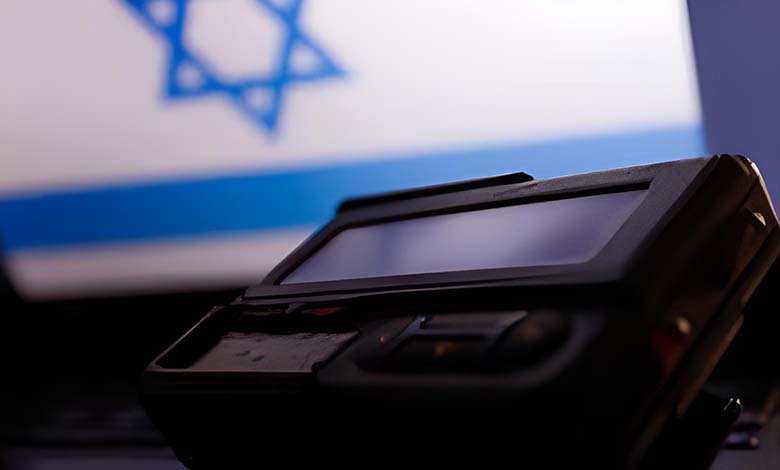Did Israel Manufacture Imitated Wireless Devices to Detonate in Lebanon?
Japanese company Icom said it stopped producing the model of wireless devices that exploded in Lebanon around ten years ago, following the denial from Taiwanese company Gold Apollo of producing the explosive pagers.

On Thursday, Japanese company Icom stated that it had stopped producing the model of wireless devices used in the explosions in Lebanon around ten years ago, after Taiwanese company Gold Apollo denied manufacturing the pagers that exploded. It also accused a Hungarian company, while the White House called on all parties to avoid escalation.
In a statement, Icom clarified that the “IC-V82” model was a portable wireless device that was produced and exported to regions including the Middle East from 2004 until October 2014. Production ceased nearly ten years ago, and no devices of this model have been shipped by the company since then.
It added that production of the batteries required to operate the main unit had also stopped. The presence of the hologram used to distinguish authentic products from counterfeits was not confirmed, making it impossible to verify if the device was shipped by the company.
-
Geagea attacks Hezbollah: Dragging Lebanon into an “absurd war” that did not benefit Gaza
-
Hezbollah’s Response to Chokr’s Assassination Eased Tensions
The company emphasized that products destined for foreign markets are exclusively sold through authorized distributors, and that its export program is based on Japan’s trade security controls.
It stated that “all our wireless devices are manufactured in our Wakayama Icom Inc. plant under strict management… No parts are used in our products except those specifically approved by the company.” It added, “All our wireless devices are produced in the same plant, and we do not manufacture them abroad.”
-
What Weapons Will Hezbollah Use in an Open War with Israel?
-
Washington Post reveals how Lebanese pay the price for Iranian threats and ongoing Hezbollah-Israel clashes
In the second wave of explosions involving communication devices in Lebanon, 20 people were killed and more than 450 injured on Wednesday in Hezbollah strongholds, according to the Lebanese Ministry of Health.
A source close to Hezbollah said that “several wireless communication devices exploded in the southern suburbs of Beirut,” and the National News Agency reported the explosion of pagers and wireless communication devices in the southern suburbs of Beirut, in the south, and in the Bekaa region in eastern Lebanon.
-
Hezbollah Bets on Tunnel Warfare in Confrontation with Israel
-
Can Israel Deter Hezbollah? Dark Scenarios for a Potential Confrontation
This attack followed a similar unprecedented explosion the previous day, which Hezbollah attributed to Israel. That explosion killed 12 people and injured around 3,000, occurring shortly after Israel announced it was expanding its war objectives against the Palestinian Hamas movement in Gaza to include its northern borders with Lebanon.
The White House on Wednesday warned all parties against any escalation in the Middle East, with National Security Council spokesman John Kirby telling reporters, “We still do not want to see any escalation of any kind. We absolutely do not believe that the way to resolve the current crisis lies in additional military operations.”
Conversely, Israel’s official broadcasting authority revealed on Wednesday what it called “coordination” between Israel and the United States regarding the detonation of wireless communication devices used by Hezbollah members and rescuers in Lebanon, despite prior denial from Washington.
Israel’s “Kan” channel, affiliated with the official broadcasting authority, indicated that there was “coordination” between Israel and the U.S. administration regarding the rare detonations that shook Lebanon. It added, “In the last 24 hours, Israeli Defense Minister Yoav Gallant spoke with his American counterpart, Lloyd Austin.”
-
Hezbollah Conceals Its Losses with Promotional Displays of the ‘Hudhud’ Drone
-
Know Hezbollah’s “Primitive” Tactics in Confronting Israeli Technology
The first call between Gallant and the U.S. Defense Secretary took place on Tuesday, minutes before the first wave of pager explosions in Lebanon, and the second call occurred before the second wave of explosions.
On Wednesday, the United States denied any involvement in the pager explosions and said it was not aware of them before they occurred.
-
Violent Clashes Between Hezbollah and Israel Amid Preparations for Total War in Southern Lebanon
-
Israel and Hezbollah: Is Confrontation Inevitable?
U.S. Secretary of State Antony Blinken, during a press conference with his Egyptian counterpart, Badr Abdelaty, in Cairo, said that the United States “was not aware of these explosions and was not involved in them.”
In a related context, an Israeli source familiar with the two waves of bombings in Lebanon told KAN in response to Wednesday’s explosions: “This is a continuation of the first wave aimed at creating a feeling within Hezbollah that it is being hunted and pursued.”
-
Dangerous Escalation: Hezbollah Targets Israeli Fighter Jets for the First Time Since the War Began
-
Forest Fires in Israel: What is Hezbollah’s Involvement and What are the Consequences?
He added, “In Israel, they are considering the possibility that the situation could escalate into a large-scale campaign in the north,” adding, “We are on the path to a regional war on a scale that we haven’t seen in the last 11 months.”
According to KAN TV, Israel and Lebanon are now closer than ever to a third Lebanon war. The Lebanese government and Hezbollah have accused Israel of carrying out the bombings, with Hezbollah vowing “severe retaliation” against Tel Aviv.












